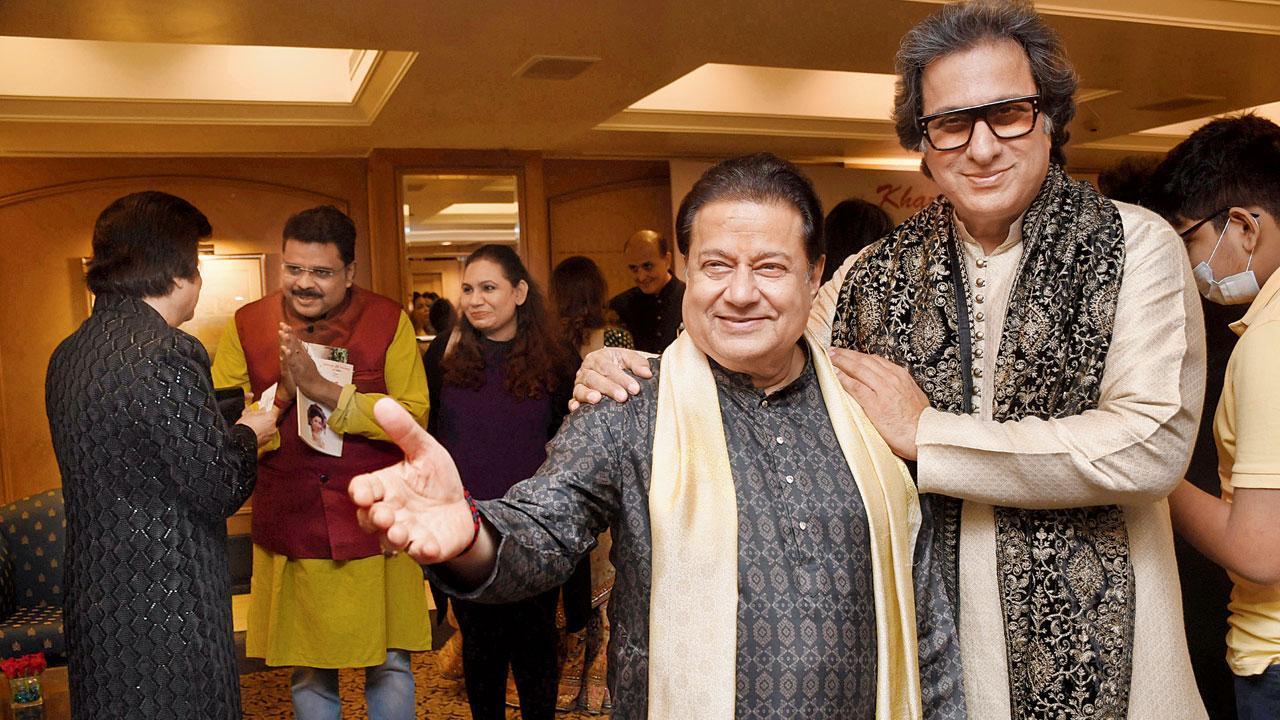
Established in 2013, the Indian Singers and Musicians Rights Association (ISAMRA) has been a relentless advocate for the monetary rights of musicians within the film industry. With a keen focus on navigating the intricate workings of music labels and associations, ISAMRA aims to ensure that artists receive the royalties they are duly owed. The organization has been making concerted efforts to tweak laws that have long been unfavorable to musicians who put in the hard work of creation.
In an exclusive conversation with mid-day, Sanjay Tandon, the CEO of ISAMRA, stresses the importance of being aware of one’s rights in today’s rapidly evolving digital landscape. “As a collecting body, we gather royalties on behalf of artistes and subsequently distribute them. Historically, the mechanisms for artists to claim their rightful earnings have been opaque at best. Our organization serves as the much-needed middleman to facilitate this financial exchange,” explains Tandon.
The discussion around royalties becomes particularly pertinent in a world increasingly reliant on artificial intelligence. With the advent of AI, voice samples of artists are now fed into software to generate new songs in the desired voice. Tandon addresses concerns about whether musicians’ rights are protected in this context. “As of now, if individuals are using AI-generated content solely for social media purposes, we aren’t taking any action. However, if these AI-generated voices are being monetized on platforms like YouTube, we impose copyright strikes,” he declares.
Chairman Anup Jalota, a respected figure in the music industry, has utilized his influence to push for reforms in royalty distribution. He has been instrumental in shaping policies that favor fair compensation for artists. “Singers and musicians have historically been at the mercy of music publishers. We ensure that if a member’s song is played, either digitally or on radio, they receive compensation. However, without public playback, we cannot generate royalties to pay them,” states Jalota.
To financially empower musicians, Tandon encourages a prolific output of work. “Create as many compositions as you can. Out of a hundred songs, even if one becomes a hit, it can be substantially profitable,” he advises.
. This approach not only aims to increase the chances of earning royalties but also builds a diverse and robust portfolio of work that stands the test of time.
In an industry where revamping old classics has become a trend, Jalota emphasizes that the original artist always receives a portion of the royalties. He notes, “Even after an artist’s death, their families continue to benefit. For instance, the royalties of the legendary Kishore Kumar are now received by his son, Amit Kumar.”
Renowned Ghazal maestro Talat Aziz, also affiliated with ISAMRA, underscores the necessity for artists to comprehensively grasp the distribution process in music. His efforts have been critical in addressing issues, specifically for those furthering the classical music scene. “Musicians who understand the logistical aspects of royalty distribution are better equipped to demand fair compensation, thereby establishing standardized practices in the industry,” asserts Aziz.
The correlation between music and legislation is becoming increasingly complex as technology continues to advance. Below are some key highlights:
1. While ISAMRA does not object to the casual use of AI for entertainment, it strictly opposes the commercial exploitation of artists’ voices through AI without proper compensation. When monetized via platforms like YouTube, ISAMRA imposes copyright strikes to protect artists’ rights.
2. Financial benefits from royalties are realized only when a song gains significant traction and consistent playtime. The board strongly advocates for artists to produce a high volume of work to maximize their financial returns.
3. After an artist’s passing, their descendants can continue to earn from royalties, providing long-term financial security for their families.
In a final note, the ISAMRA’s endeavors underline a critical reality: securing financial rights in the music industry is not a passive affair. It requires active participation, awareness, and a robust framework of laws to ensure that those who contribute their talents receive fair compensation for their work. As the digital and AI landscapes evolve, organizations like ISAMRA become essential in safeguarding the interests of musicians and ensuring their futures are secure.












